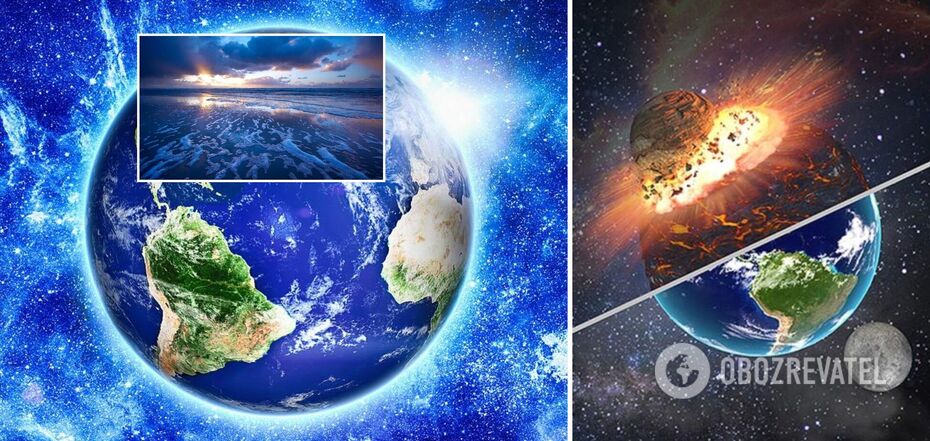Life
Where did water come from on Earth: scientists have voiced theories
Earth's water reserves are incredibly important for sustaining life, but where did this water come from - did it come from the formation of the Earth, or was it brought to the planet later by meteorites and comets from outer space? Scientists examined samples from the Moon and theorized that the Earth was "born with water".
The source of water on Earth is the subject of a long-standing debate among scientists. To get closer to the truth, experts at Lawrence Livermore National Laboratory (LLNL) studied the isotopic composition of lunar rocks. The results of their study were published in the journal Proceedings of the National Academy of Sciences, SciTechDaily reported.
Since the Earth-Moon system was formed together by the collision of two large bodies early in the formation of the solar system, their histories are very closely related. And because the Moon lacks plate tectonics and weathering, this natural satellite of the Earth is an excellent place to look for clues to the history of water on our planet.
Data from analyses of lunar samples suggest that although the Earth and Moon were formed in a giant impact, they largely retained their original amounts of volatile elements, including water.
Despite the fact that about 70 percent of the Earth's surface is covered with water, the planet as a whole is a relatively dry place compared to many other objects in the solar system. And the moon is even drier. The generally accepted view was that the lack of volatile substances (such as water) on Earth, and especially on the moon, was due to the same collision, and it was this that caused the depletion of volatile elements.
But by examining the isotopic composition of lunar rocks, the team of scientists found that the bodies involved in the giant impact that formed the Earth-Moon system had very low levels of volatile elements before the impact, not because of it.
Specifically, the scientists used the relative amounts of the volatile and radioactive isotope rubidium-87 (87Rb), which is calculated from its daughter isotope strontium-87 (87Sr), to determine the balance of rubidium in the Earth-Moon system when it formed. The team found that because 87Sr was so low, the colliding bodies must have been dry to begin with.
"Earth was either born with water, which we have, or we were hit by something that was mostly pure H2O with nothing else in it. This work rules out meteorites or asteroids as possible sources of water on Earth and strongly suggests the option of our planet being born already with water," said cosmochemist Greg Brenneck, a co-author of the paper.
In addition, this work also shows that the large bodies that collided were from the interior of the solar system, and this event could not have occurred before 4.45 billion years ago, which significantly shortens the time window for the formation of the moon.
"There were only a few types of materials that could have joined together to create the Earth and the Moon, and they were not exotic. Rather, they were simply large bodies formed in roughly the same area, accidentally colliding with each other a little more than 100 million years after the formation of the solar system. But fortunately for us, that's exactly what they did," said lead study author Lars Borg.
As reported by OBOZREVATEL, a group of scientists from China found water in a sample of lunar soil.
Only verified information in our Telegram channel Obozrevatel and Viber. Do not be fooled by fakes!



























